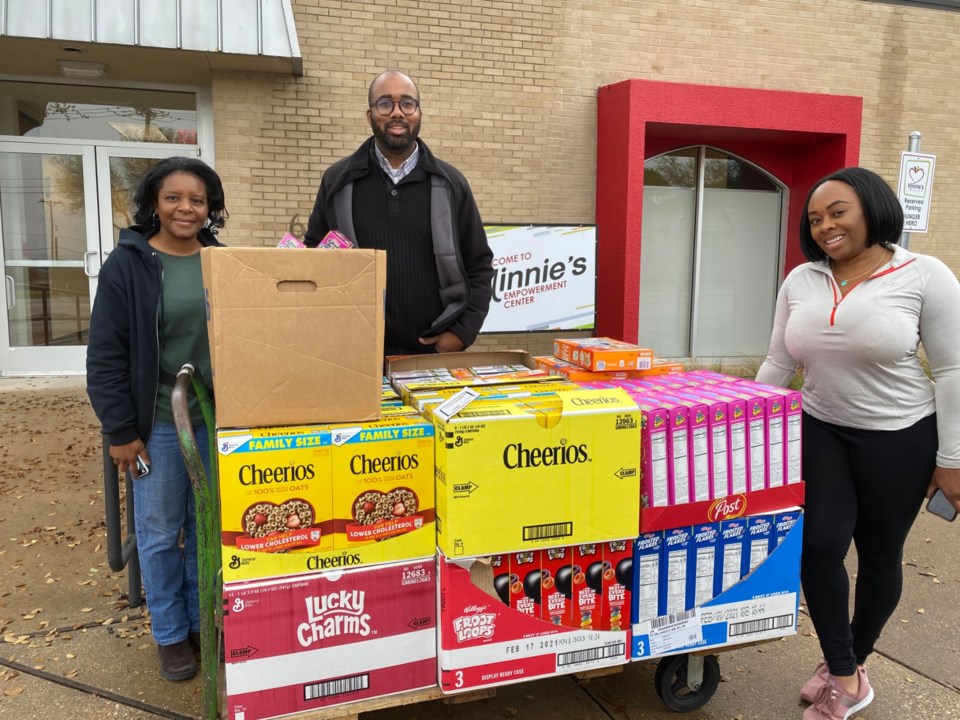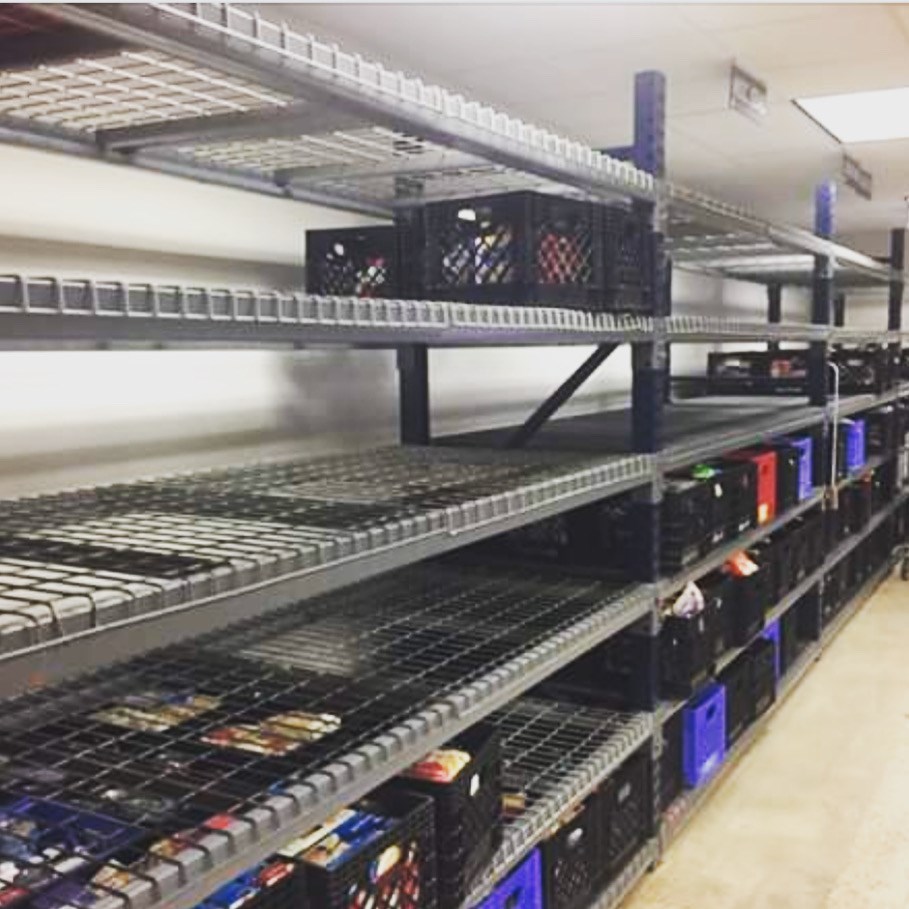
Food pantries are seeing a lot of changes to their organizations in the wake of the Coronavirus outbreak, starting with the people who come to them for help.
“[About] 20 to 30 percent of people we see now are new clients and have never been at a food pantry before and have found themselves walking up startled and sad,” says Cheryl Jackson, the founder of Minnie’s Food Pantry in Plano. “I’ve seen so many emotions from the front line from people saying they never thought they’d be here to ‘What happened?'”
Some like Minnie’s Food Pantry on 18th Street in Plano have seen their shelves emptied out while others like A Christian Food Pantry & Thrift Store on Dobie Drive also in Plano are altering their procedures for handing out donations.
“We’re trying to keep the numbers down of people coming in contact with other people,” says Walt Webking, president of A Christian Food Pantry. “I have to change our procedures too so it’s very labor intensive.”
Since the lockdown went into effect causing work stoppages and a sudden lack of steady income for several homes and families, more people have shown up at the food banks seeking donations. Jackson says emotions are running high.
“I had a lady who literally threw a box at one of my volunteers and I went outside and found her and said, ‘Tell me what’s going on,'” she says. “She said she didn’t see cereal, just oatmeal in her box. I said it’s because we ran out. She just started crying. She said, ‘I’ve never been to so many different charities.’ It’s just a sign of the times where people are wondering what’s going to happen next and living in fear of the unknown.”
The demand is just as high as ever for Webking’s pantry. The faces are also new.
“The numbers are just about identical,” he explains. “We’re seeing different people but the numbers are the same. Some of the people come regularly, but there are a lot of them that don’t come regularly. A whole bunch of people lost their jobs and all of a sudden, Dad’s not working. So there’s no money coming in, and there’s no food in the refrigerator. It’s just changed their lives.
“I don’t think we’ve seen the worst of it yet,” he adds.
Food may be flying off the pantries’ shelves, but both Jackson and Webking say the community is doing what they can to help keep them stocked. Webking’s store donations may have dropped a bit since people started buying out their stock, yet they regularly receive food donations from the North Texas Food Bank. Even though Minnie’s Food Pantry hands out around 200 food packages a day, Jackson says they’ve also received “the most donations we’ve ever seen. “We’ve got some angels in this community ringing Minnie’s bell to make sure our kids are being fed,” she says.
There are also more than enough volunteers showing up to help package and deliver goods. Jackson says they’ve had to make a waiting list.
But the need for donations will still be there as long as the Coronavirus outbreak continues and people are being asked to stay in their homes to keep it from spreading. Jackson says items like canned fruit, canned meat, and cereal are in shorter supply than usual and that they’ve partnered with Amazon Smiles to raise money for future purchases. Webking says the best way to help his food pantry is by making monetary donations.
Jackson says people should not be afraid to ask for help from a food pantry if they really need it.
“If you’re in need and you’ve never been to a pantry, don’t be afraid to come,” she says. “We’ve had people come and say, ‘We didn’t know you were going to give us this much.’ It’s not just giving you some bread and a piece of pizza. It’s giving you meals you can make for your family.”
Keeping people and families fed with healthy, nutritious meals is not a limited problem especially during a global pandemic. Jackson says they also work with Plano Independent School District schools to provide meals to the 16,000 students and their families who live in food insecurity homes. “The face of hunger has changed,” she says. “Some think we’re just serving the homeless but just 15 percent of the people we serve are homeless. We’re serving the working poor.”
Food pantries also just don’t give out food. They give out hope in a time when people are emotionally and physically separated.
“We did a delivery last week and they were just so grateful just to see somebody,” Jackson says.




